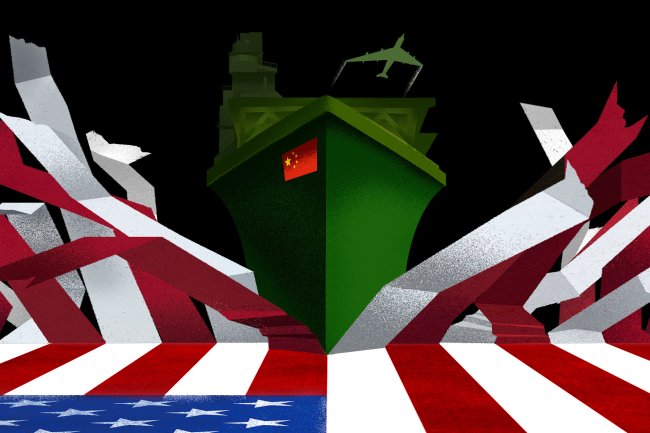When Theodor Herzl Met the Pope
By Yosie Levine April 27, 2023 6:24 pm ET Theodor Herzl in Basel, Switzerland, 1897. Photo: Imagno/Getty Images Theodor Herzl, father of modern Zionism, traveled to the Vatican in January 1904 to plead his case to Pope Pius X. Months earlier in the Russian Empire, scores of Jews had been murdered in what became known as the Kishinev pogrom. The Jews of Europe needed a refuge. Herzl argued that Palestine, then under Ottoman rule, was the logical homeland of the Jewish people. The pope promised to help: “If you come to Palestine and settle your people there, we shall have churches and priests ready to baptize all of you.” Needless to say, this wasn’t the response for which Herzl had been hoping. In further conversation, however, the Jewish statesman revealed something important about his vision of how Jew

By
Yosie Levine

Theodor Herzl in Basel, Switzerland, 1897.
Photo: Imagno/Getty Images
Theodor Herzl, father of modern Zionism, traveled to the Vatican in January 1904 to plead his case to Pope Pius X. Months earlier in the Russian Empire, scores of Jews had been murdered in what became known as the Kishinev pogrom. The Jews of Europe needed a refuge. Herzl argued that Palestine, then under Ottoman rule, was the logical homeland of the Jewish people.
The pope promised to help: “If you come to Palestine and settle your people there, we shall have churches and priests ready to baptize all of you.” Needless to say, this wasn’t the response for which Herzl had been hoping.
In further conversation, however, the Jewish statesman revealed something important about his vision of how Jews and Christians would coexist in the holy land. As the self-appointed representative of a people who had been stateless for 1,800 years, Herzl understood the realpolitik of his time. To allay the pope’s concerns about what would become of churches and holy sites, he invoked the doctrine of extraterritoriality. Even in a Jewish state, such sacred places as Jerusalem, Bethlehem and Nazareth would sit outside Jewish jurisdiction—perhaps even under the protection of the Holy See.
Herzl was a dreamer but also an arch pragmatist. His imagined state would be hospitable to all comers, Jews and Gentiles alike. It’s no accident that Israel’s Declaration of Independence announces that the state “will safeguard the Holy Places of all religions,” a kindness that hadn’t been extended to Judaism prior to the nation’s founding.
As Israel celebrates its 75th birthday, its citizens are riven by conflict. The proximate cause is the government’s proposal to reform the judiciary, but months of protests have served only to highlight a deeper sense of factionalism throughout Israeli society. In these moments, those invested in Israel’s success would do well to reflect on one of its founder’s insights.
For Herzl, what was true about the relationship between Jews and non-Jews was also true for the Jewish community. He appreciated that the state would bring together all kinds of Jews, each of which would contribute to its success. As he wrote in 1896: “There are English hotels in Egypt and on the mountain-crest in Switzerland, Viennese cafés in South Africa, French theaters in Russia, German operas in America, and the best Bavarian beer in Paris.” Immigrants would import the best of their respective backgrounds to their new land and everyone would stand to benefit.
Herzl practiced what he preached. An acculturated German-speaking Jew, he wasn’t observant. Yet on the eve of the second Zionist Congress in 1898, Herzl went to synagogue in Basel. Anticipating that he’d be called to recite a blessing known to all traditional Jews, he asked a friend to help him learn the liturgy.
“The few Hebrew words of the blessing caused me more anxiety than my welcoming and closing address and the whole direction of the proceedings,” he confessed in his diary. Attending a Shabbat service wasn’t simply good politics—it was good relationship-building. He appreciated the value of showing solidarity with religious Jews, a group that was a tiny island in a sea of secular Zionists.
Biographer Shlomo Avineri
While the contours of the judicial-reform debate defy easy solutions, each side will have to make concessions that acknowledge Israel’s heterogeneity. Those who favor reform will need to abandon their insistence on Parliament’s unlimited ability to override Supreme Court decisions with a simple majority. Those against it will have to accept a new mechanism for appointing judges that significantly dilutes the power of those who currently have a say in these selections. Any workable solution will have to preserve robust checks and balances, protect minority rights and—in the absence of a constitution—enshrine Basic Laws.
Herzl believed it was possible for the state to embrace a universalistic ethic even as it remained particularistic. The founders, several decades later, concurred. Israel’s Declaration of Independence doesn’t name “liberty, justice and peace” as the nation’s values, but “liberty, justice and peace as taught by the Hebrew prophets.” The best of Jewish and democratic values were meant to reinforce each other.
Nostalgia won’t be enough to extract Israel from its current morass. That will take political courage, a spirit of compromise, and the conviction that peaceful coexistence is possible. If Herzl could dream a Jewish state into reality, surely his heirs can set it on a path that would make the prophets proud.
Mr. Levine is the rabbi of the Jewish Center in New York.
What's Your Reaction?













